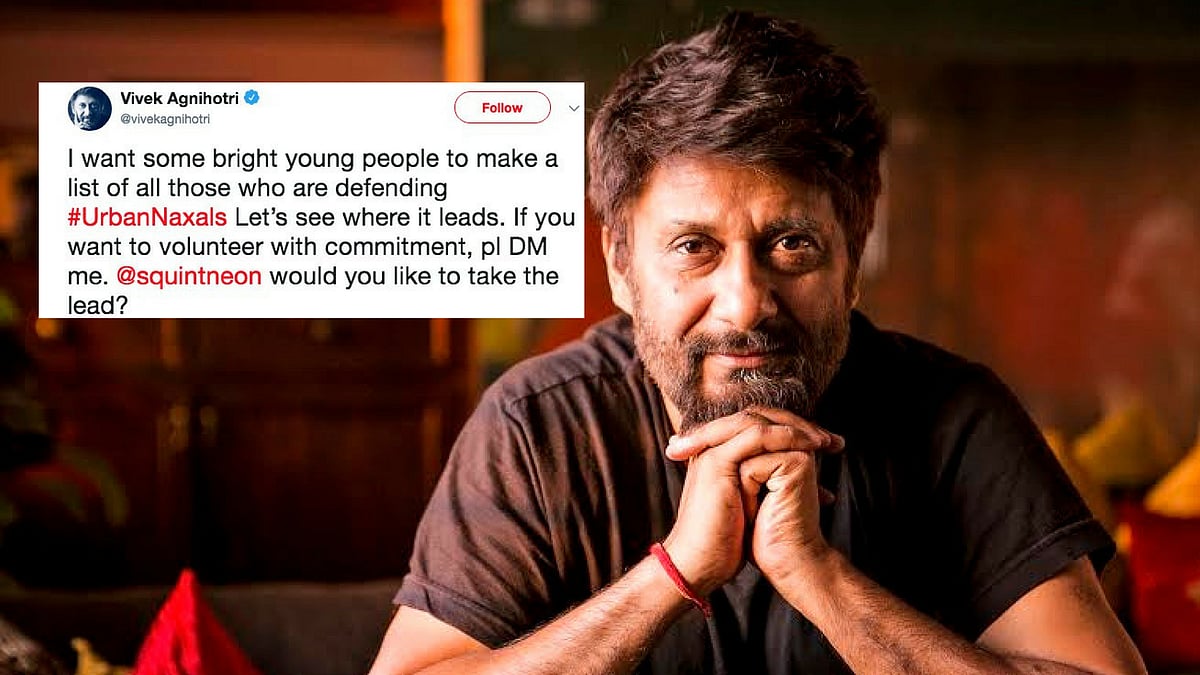
Vivek Agnihotri Draws Flak as #MeTooUrbanNaxal Trends on Twitter
Tweeple respond to Agnihotri’s ‘clarion call’, enlist themselves as ‘Urban Naxals’.

advertisement
Filmmaker and author Vivek Agnihotri, on 28 August, posted a call for “bright young minds” to volunteer to “make a list of those who are defending #UrbanNaxals” on Twitter, following the arrest of five activists on suspicion of Maoist links in the Bhima Koregaon violence.
Among those arrested were Indian trade unionist, civil rights activist, and lawyer, Sudha Bharadwaj, activist-poet Varavara Rao, activists Vernon Gonzalves and Arun Ferreira, and civil liberties activist Gautam Navalakha.
The countrywide raids and arrests led to social media outrage, with many referring to the move as a ‘witch hunt’ to quell dissent.
Tweeple Respond to Agnihotri’s ‘Clarion Call’ with #MeTooUrbanNaxal
Agnihotri’s ‘clarion call’ received responses from netizens, who enlisted themselves as ‘Urban Naxals’ using the hashtag #MeTooUrbanNaxal.
“Nothing But Rabble Rousing,” Say Netizens
Agnihotri’s tweet drew significant flak on social media.
Agnihotri is also the author of Urban Naxals: The Making of Buddha in a Traffic Jam. Some saw the tweet as a way to promote his book.
In a 2017 essay in the right-wing magazine Swarajya, Agnihotri defined ‘Urban Naxals’ as “urban intellectuals, influencers or activists of importance” who are “the ‘invisible enemies’ of India”. Some of these people, Agnihotri claimed, “have either been caught or are under the police radar for working for the movement and spreading insurgency against the Indian state”.
On his Twitter bio, he writes, “#UrbanNaxals Morally, it’s disgusting. Legally, it’s questionable. Personally, I like it (sic).”
Not an ‘Actionable’ List, Only a Dataset: Agnihotri Defends Tweet
In an interview with OpIndia, Agnihotri said that “he didn’t aim to create any ‘actionable’ list, but just a dataset where people can see what is common between those who were supporting the ‘Urban Naxals’.”
He added that he stands by his tweet and that this “should be taken as an academic exercise.”
(At The Quint, we question everything. Play an active role in shaping our journalism by becoming a member today.)
- Access to all paywalled content on site
- Ad-free experience across The Quint
- Early previews of our Special Projects
Published: 29 Aug 2018,12:19 PM IST